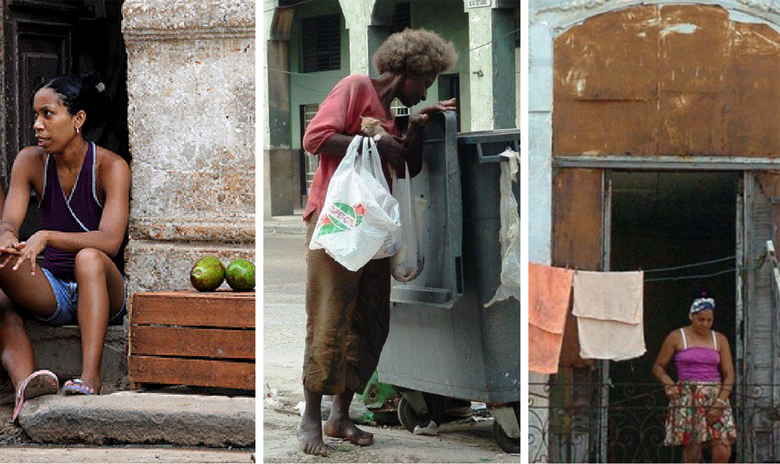The amount of news from Cuba accounting for the collapse of buildings and homes resulting from the most recent rains and flooding, as well as the drowning of crops for the same reasons, are constantly increasing.
At the same time we are aware of the many tons of food that rotted without being distributed, the outrageous armed assault to confiscate his land and properties from a successful private producer of food, the promises of the new “president” on the construction of houses, and the new customs fees and confiscations offensive against the import of goods by private citizens.
The infrastructure and national economy collapses:
- There is no inter-provincial passengers transport by plane, train or buses.
- The Port of Mariel project languishes without investors or maritime traffic.
- The tobacco crops has been lost with the rains.
- The sugarcane harvest is the worst since 1894.
- Tourism is in a free fall.
- Nickel exports are also down.
Those who forgave and/or restructured the Cuban debt, hoping to collect something for it, have lost their hopes. Venezuela, China and Russia no longer serve as lifesavers for the Castro economy.
The equation is simple. If Cuba imports 80% of the food it consumes and has no money to buy it, but at the same time the other 20% that is produced on the island was lost with the floods, what are Cubans going to eat in the second half of 2018 while waiting for the 60th anniversary of the triumph of communism in Cuba?
The question is also very simple: Would General Castro continue his blockade of the private sector and the attrition war against the progress and welfare of the Nation or, as the Vietnamese advised him, will open up to the market economy. Famine and conflicts or reforms and markets? Those are his only options.
The ZEDM – (i.e. Port of Mariel) sold as the flagship project of the Cuban economy – has only managed to generate 4,888 direct jobs in five years. On the other hand, self-employment has generated 578,421 direct jobs in eight years, which means that Cuban entrepreneurs, despite the limitations to which they are subject, have generated 118.33 times more employment than the brand new ZEDM with all its fiscal advantages.
Why then does the government exercises economic repression against the Cuban population? Why is it harassing and blocking the development of Cuban entrepreneurs?
Raúl Castro knows that if the population would rebel they would not be enough bayonets and batons to subdue it. He also knows that he cannot provoke a massacre and expect it to go unchallenged 90 miles from the United States under Donald Trump’s government.
But Raul is confident that after six decades of brutal repression Cubans are docile and domesticated. He trusts that they have been convinced that they can do nothing to change their lives unless they leave to another country.
At the moment, the official mentality coined by Fidel Castro still stands: “There is no one capable of fixing this country, but there is also no one capable of knocking down the government.” Perhaps, but, for how long?



